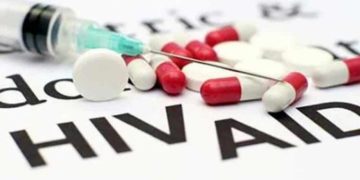Everyday, millions of Kenyans consume foods that are slowly killing them without their knowledge. These foods are affordable, heavily marketed and readily available.
While about 8.9 million Kenyans (17 percent of the population) are living in extreme poverty and do not have access to food, a growing health crisis is being fueled by the abundance of unhealthy, ultra-processed foods.
These foods are largely contributing to a rising wave of non-communicable diseases (NCDs), including heart disease, obesity, cancer, and diabetes, among others.
In Kenya, 50 percent of women above reproductive age are obese, and 20 percent of men are also affected.
Additionally, half of hospital beds in Kenya are occupied by those suffering from non-communicable diseases (NCDs), according to Leila Akinyi Odhiambo, the Deputy Head of Nutrition and Dietetics Unit at the Ministry of Health, Kenya.
“If you want to change the health of a population, nutrition is the foundation,” she said.
However, what makes it worse is that many people still don’t see unhealthy eating as a public health threat, and are happy to afford and have access to any kind of food to eat.

This alarming trend is not unique to Kenya. It is a widespread issue across East African countries. But as East Africa grapples with this growing crisis, the big question is whether we can come together and create a unified approach to nutrition across the region that prioritizes health over convenience and profit.
The East Africa Regional Dialogue on Policies to Transform Markets for Nutritious Foods, co-convened by the African Population and Health Research Center (APHRC), Access to Nutrition Initiative (ATNi), and the Ministry of Health, Kenya addressed this growing concern.
The conference brought together key voices in nutrition and public health on April 8 and 9, 2025, to discuss how to ensure that nutritious foods are not just accessible, but affordable, desirable, and profitable.
Also Read: Duale Pressured to Declare a National Emergency
Why are Multinationals Feeding Toxic Foods to Kenyans?
At the Mombasa dialogue, one of the central questions posed was whether nutritious foods can make a good business case.
Sadly, companies that push unhealthy foods still make the most profit, with only 34 percent of sales being made from healthy packaged foods in Kenya, because of aggressive marketing, cheap ingredients, and wide distribution networks.
Executive Director for Access to Nutrition initiative (ATNi) Greg Garret noted that unhealthy food companies profit the most, and the right policies are needed to promote healthier, affordable food options.
Such policies, he said, could include introducing taxation to Sugar-Sweetened Beverages (SSBs), or introducing incentives to the key industry players who are making money off the unhealthy foods, that will encourage production of healthier options. Especially for the case of packaged foods.
“Policies like proper incentives are the key to unlocking the support for a healthier and affordable food environment,” he said.
On the other hand, a Public health specialist at the Ministry of Health Kenya, Doctor Norbert Abuya, highlighted that digital food ordering platforms and influencers are the new-age drivers of unhealthy food consumption, especially among children.
Dr. Abuya explained that fast foods, which are mostly unhealthy, are perceived to be better tasting and a more luxurious option, enticing the youth who want to belong.
However, he noted that even in the villages, people easily trade healthy and nutritious food for Sugar-Sweetened Beverages, adding that sensitization in critical.
Meanwhile, the intake of traditional diets rich in nutrients are in decline. Ironically, they are also often more expensive and less accessible than the ultra-processed options.
The Health Cabinet Secretary of Kenya, Aden Duale, who was represented at the conference, also highlighted the worrying trend, especially among children and adolescents.
“The rise of Obesity and non-communicable diseases among Children and Adolescents in Kenya is worrying,” noted Duale.
To address these concerns, Kenya’s Ministry of Health is creating a nutrient profile model (NPM) designed specifically for the country. The model could lead to important changes, including front-of-pack labeling (FOPWL), stricter advertising rules, and improved school meal standards.
Also Read: Ruto Under Pressure to Declare a National Emergency
Possible Action by East African Countries
The policymakers and civil society organizations agreed that there is a need for East Africa to develop a unified approach to food policies, one that focuses on nutrition, health, and sustainable food systems.
However, harmonizing these policies across countries in the East African Community (EAC) is not a simple task.
Dr. Julius Otim from the EAC Secretariat pointed out that aligning food policies across borders while accounting for regional frameworks like SADC (Southern African Development Community) complicates the process.
On the other hand, Stephanie Kaaya from the Tanzania Bureau of Standards (TBS) said that there was a need for unified regional standards, emphasizing areas like front-of-pack labeling, nutrition profiling, and food safety, especially on issues like aflatoxin control.
She said that without such standards, countries risk creating non-tariff barriers to trade that can hinder economic growth and health progress across the region.
However, while the technicalities of policy pose a challenge, the influence of industry on government decisions was also noted as a huge barrier to building a healthy food environment.
Government is often captured by industry, and that becomes the biggest obstacle to policy implementation. This ‘capture’ by food and beverage corporations results in policies that prioritize profit over public health.
Food insecurity remains a pressing issue in many communities, and yet, as the dialogue revealed, there is a rising risk that is being overlooked. The shift in how people perceive food from mere access to quality nutrition.
It is no longer about eating enough, it is about eating healthy and well.
Follow our WhatsApp Channel and X Account for real-time news updates.




![Debate Rages Over Proposed Increase In Legal Drinking Age [Video] Nacada Raises Legal Drinking Age From 18 To 21]( https://thekenyatimescdn-ese7d3e7ghdnbfa9.z01.azurefd.net/prodimages/uploads/2025/07/beer-360x180.jpg)


































































![Debate Rages Over Proposed Increase In Legal Drinking Age [Video] Nacada Raises Legal Drinking Age From 18 To 21]( https://thekenyatimescdn-ese7d3e7ghdnbfa9.z01.azurefd.net/prodimages/uploads/2025/07/beer-120x86.jpg)


